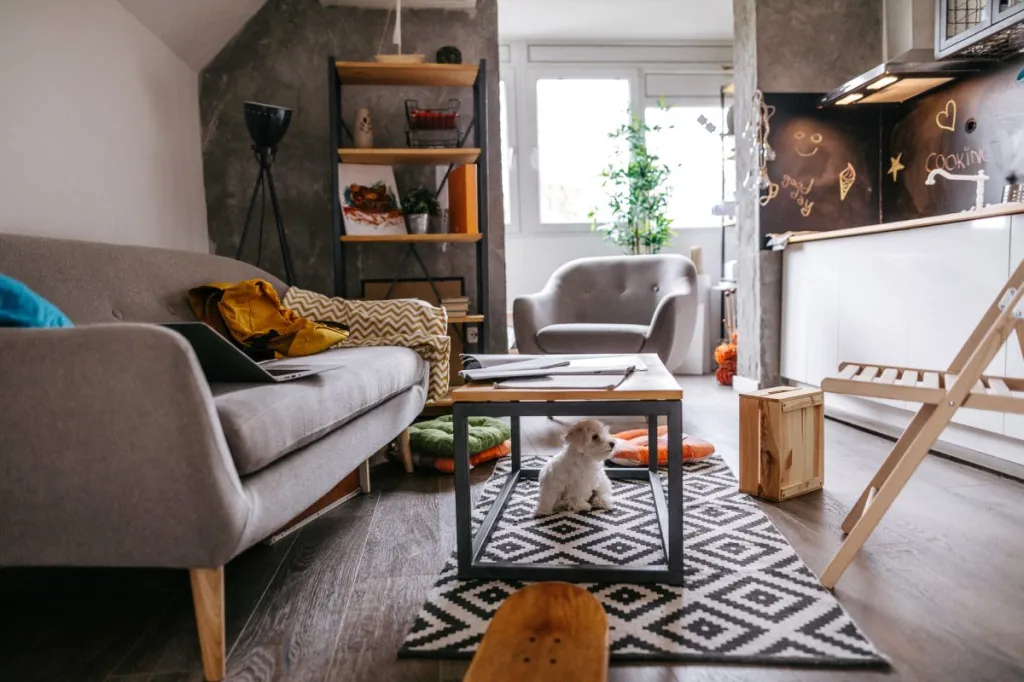Welcome, apartment dwellers and dog lovers! If you’re seeking a furry companion that fits seamlessly into apartment living without causing a racket, you’re in the right place. Join me as we explore some of the most popular and quiet small dog breeds perfect for apartment life.
What Makes a Dog Breed Suitable for Apartments?
Living in an apartment comes with its own set of challenges, especially when it comes to noise levels and space constraints. The ideal apartment dog is typically small to medium-sized, has a calm temperament, and doesn’t have a tendency to bark excessively. These breeds are often adaptable to indoor living and don’t require a large yard for exercise.
Characteristics of Quiet Small Dog Breeds
Small dog breeds that are well-suited for apartments often share certain characteristics:
- Low to moderate energy levels: They don’t need extensive exercise but still enjoy daily walks and playtime.
- Friendly and adaptable: They get along well with people and other pets, making them ideal for urban environments.
- Minimal barking tendencies: They alert their owners without being noisy, making them considerate neighbors.
Choosing the Right Small Dog Breed
When selecting a small dog breed for apartment living, consider factors such as:
- Size: Ensure the dog’s size is appropriate for your apartment’s space limitations.
- Temperament: Look for breeds known for being calm, affectionate, and adaptable.
- Exercise Needs: Consider how much daily exercise the breed requires and if you can meet those needs in an urban setting.
Popular Quiet Small Dog Breeds for Apartments
Let’s dive into some of the top small dog breeds known for their quiet demeanor and suitability for apartment living:
Cavalier King Charles Spaniel
The Cavalier King Charles Spaniel is a gentle and affectionate breed that thrives on human companionship. They are relatively quiet dogs, making them well-suited for apartment life as long as they receive daily walks and playtime indoors.
French Bulldog
Despite their muscular appearance, French Bulldogs are surprisingly quiet dogs. They are known for their affectionate nature and adaptability to small spaces, making them popular choices for city dwellers.
Shih Tzu
Shih Tzus are small, sturdy dogs with a calm demeanor and minimal barking tendencies. They enjoy indoor activities and are content with short walks, making them excellent companions for apartment dwellers.
Bichon Frise
The Bichon Frise is a cheerful and sociable breed that doesn’t bark excessively. They are adaptable to apartment living and enjoy being around people, making them ideal for families and individuals alike.
Italian Greyhound
Italian Greyhounds are elegant and quiet dogs known for their affectionate nature. They are content to lounge indoors but still appreciate daily walks and play sessions, making them suitable for apartments with active owners.
Tips for Caring for Small Dogs in Apartments
Caring for a small dog in an apartment involves meeting their physical and emotional needs within a confined space:
- Daily Exercise: Ensure your dog gets enough physical activity through walks, playtime, and mental stimulation.
- Training: Teach your dog basic obedience commands and reinforce positive behaviors to prevent excessive barking or anxiety.
- Grooming: Regular grooming such as brushing, nail trimming, and dental care helps keep your dog healthy and comfortable indoors.
Conclusion
In conclusion, choosing a quiet small dog breed for your apartment can enhance your living experience while providing a loving companion. Whether you opt for a Cavalier King Charles Spaniel’s gentle affection or a French Bulldog’s loyal companionship, these breeds offer a blend of charm and adaptability that suits urban lifestyles. Remember, understanding the breed’s characteristics and meeting their needs ensures a harmonious life together in your apartment.
- Best Clay Alternatives for 2025 - April 19, 2025
- Best Seamless.ai Alternatives for 2025 - April 19, 2025
- Best UpLead Alternatives for 2025 - April 18, 2025



